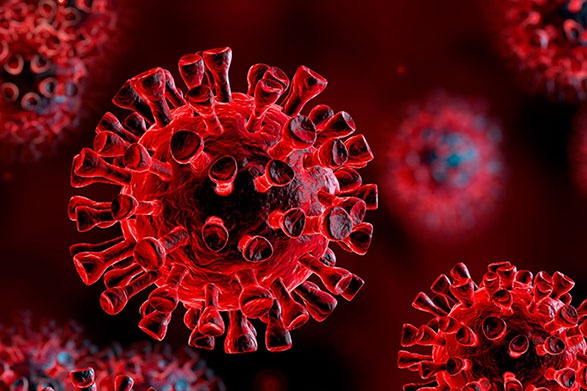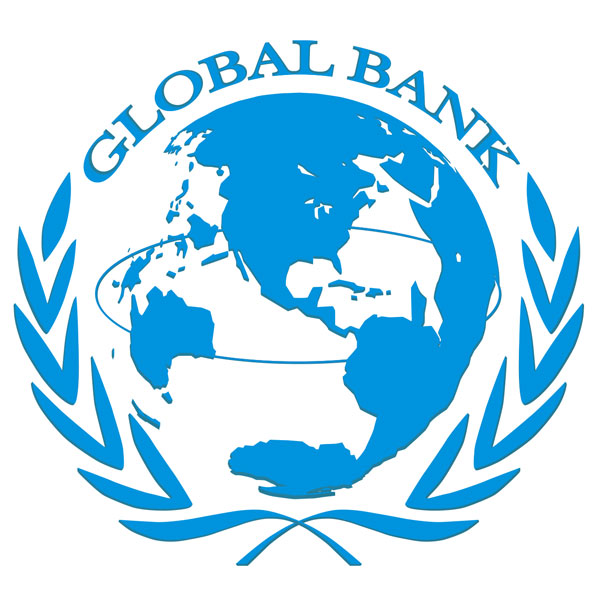
Newport Beach, CA – March 11, 2020 – COVID-19 pandemic is continuing to expand globally and its global impact is already staggering, with more than 118,000 cases in 114 countries, and 4,291 people have lost their lives1, thousands more are fighting for their lives in hospitals from the pandemic caused by the novel coronavirus, following an outbreak that started in Wuhan, China, in early December.
The President of the Global Bank Group Ron Nechemia (@RonNechemia) has today issued the following statement:
On behalf of the Global Bank Group, its Affiliates, Affiliated Specialized Agencies, Funds, and Programmes to the families and friends of those who have tragically lost their lives, and the first responders who continue to risk their own lives to save the lives of others, we stand with you and the communities affected by the devastating impact following the outbreak that started in Wuhan, China, in early December.
Recognizing the impact that the COVID-19 pandemic has had on people’s health, wellbeing, and livelihoods Ron Nechemia further stated:
The coronavirus pandemic is threatening international peace, security and stability — the crisis which has started as a public health crisis has transformed to an economic crisis and evolved into an unemployment crisis leading to an increase in social unrest and violence that significantly undermines the ability to fight the disease;
COVID-19 socio-economic impact estimates for 2020 as of March 2020
- 5 - 25 million jobs lost (ILO2)
- US$ 860 billion – US$ 3.4 trillion losses in labour income (ILO)
- 30% - 40% downward pressure on global foreign direct investment flows (UNCTAD3)
- 20% - 30% decline in international arrivals (UNWTO4)
- 3.6 billion people offline (ITU5)
- 1.5 billion students out of school (UNESCO6)
Urgently address “defining challenges of our time.”
Globally, the coronavirus (COVID19) pandemic has become the most significant crisis to challenge the health, economy and the wellbeing of humanity, affecting nearly all the countries. The world governments are taking radical mitigation measures to counter the health impact of the virus, which has severe economic and financial consequences on the lives of people all around the world. Thus, the COVID-19 has become more than a health crisis for all countries with critical social, economic and political consequences.
“We need to address the defining challenges of our time urgently. Access to quality public health must include procuring critical supplies, testing residents and staff, isolating high numbers of contagious residents, caring for those afflicted, and protecting staff on a scale never before experienced in any country. People are struggling financially. Health care workers are overwhelmed. Life as we knew it is gone – at least for a while,” Ron Nechemia said. “We cannot achieve this at the Global Bank Group alone. We are all in this together.”
Meeting the Challenges of Development
The Bank Group’s strategic priorities are aligned to advance those of the G-7 7/G-8 and G-20 8 and a leading priority to promote global economic and social development. Unlike the multilateral development banks (MDBs), the Global Bank Group is not restricted to operating only in developing countries.
The Global Bank Group supports the G-7 and G-20 ambitious action plan to strengthen the capacity of health systems to cope with the epidemic; to stabilize the world economy through timely, targeted and coordinated measures; and to pave the way towards recovery. The Bank Group acts with a broad vision and delivers concrete outcomes. It works to address critical issues affecting the global economy and endeavours to promote robust, sustainable, and balanced growth.
The Global Bank Development Group is resolved to tackle common challenges to the global community, including terrorism, displacement, poverty, hunger and health threats, job creation, climate change, energy security, and inequality, including gender inequality, as a basis for inclusive, sustainable development and stability. The Forum works together with others, including developed and developing countries. In particular, the least developed countries to address these challenges, building on the rules-based international order.
The Global Bank Development Group will forge new pathbreaking system change opportunities to help countries navigate the crises of today—pandemic, climate change, famine, fragility, conflict, migration—and prepare for the emerging, complex future—the digital revolution, the changing nature of work, and the shifts in economic power.
| 1 | World Health Organization |
| 2 | International Labor Organization |
| 3 | UN Conference on Trade and Development |
| 4 | UN World Tourism Organization |
| 5 | UN Telecommunication Union |
| 6 | UN Educational, Scientific and Cultural Organisation |
| 7 | The Group of Seven (G7) is an international intergovernmental economic organization consisting of the seven advanced economies in the world: Canada, France, Germany, Italy, Japan, the United Kingdom and the United States. |
| 8 | The G20 (or Group of Twenty) is an international forum for the governments and central bank governors from 19 countries and the European Union (EU). The G20 was founded in 1999 with the aim to discuss policy pertaining to the promotion of international financial stability. Membership of the G20 consists of 19 individual countries plus the European Union. The EU is represented by the European Commission and by the European Central Bank. Collectively, the G20 economies account for around 90% of the gross world product (GWP), 80% of world trade (or, if excluding EU intra-trade, 75%), two-thirds of the world population, and approximately half of the world land area. |







